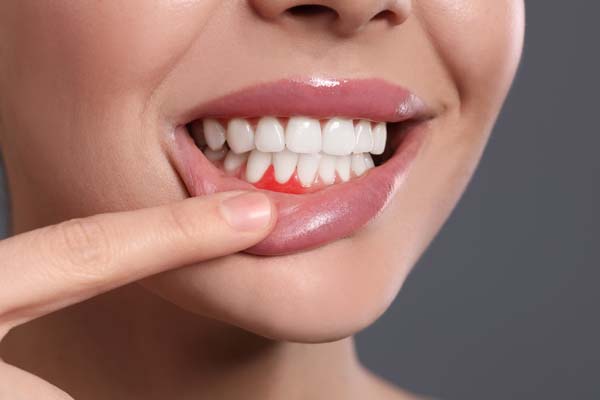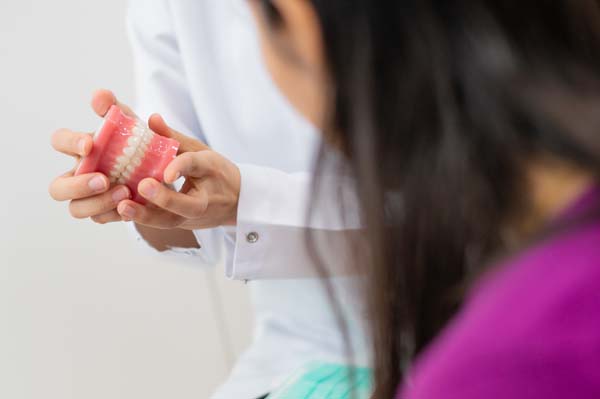How Does One Get Periodontal Disease?

Red, inflamed or swollen gums are often the sign of gingivitis, the first stage of periodontal disease or worse still, periodontitis. Plaque is the most common cause of the condition, but there are several others that can cause gum infection.
The causes of periodontal disease
The following are some of the common ways to get gum disease:
Plaque buildup
Gum disease is usually caused by plaque, which is a film of bacteria that forms on the gums and teeth and removable through daily brushing and flossing. Millions of people in the united states have one form of gum disease. Fortunately, early detection makes it possible to reverse the effects of the disease. A good oral care routine and regular dental checkups at least twice a year can help reduce plaque.
Smoking and chewing tobacco
Smoking inhibits the regular function of the gum tissue cells, making the mouth more susceptible to infections such as gum disease. Chewing tobacco is just as worse. Patients need to avoid the habit to prevent oral health issues.
Nutritional deficiencies
Getting the daily vitamins is difficult, but the deficiency of vitamin c could be detrimental to the gums. A diet with high sugar and carb and low water and vitamin C content is a recipe for periodontal disease. To prevent periodontal disease, it is advisable to drink a lot of water and get a balanced diet that is high in vitamin C.
Certain medications
Some medications cause side effects that can lower the production and flow of saliva, which may cause dry mouth, encouraging the further spread of bacteria. It is advisable to discuss prescription medications with the doctor before use.
Hormonal shifts
Women during pregnancy or their monthly menstrual cycles experience an increase and decrease in hormones, making the gums more prone to disease. Pregnancy does not automatically mean women will experience issues with their gums or teeth, but it means they will have to take extra steps for oral care at the period for oral health. The gums might become irritated, red or bleed slightly when brushing or flossing. These symptoms often disappear after pregnancy, but the dentist should still be aware of the symptoms.
Crooked teeth
It is common for teeth to become crooked, overlap or rotate. However, a crowded mouth can be a breeding area for gum disease, since dental misalignments create more areas for plaque to accumulate and wreak havoc on the teeth and gums. Patients need to take extra care if they have crooked teeth or visit the dentist for teeth straightening.
Family history
The dentist needs to know if there is a history of periodontal disease in the family. It might increase the risk of developing a bacterial infection.
In conclusion
Evidently, there are many potential causes of periodontal disease, all of which are manageable by being proactive with oral care. The best step to take after noticing the signs of the disease is to visit the dental office for treatment. The general dentist will examine the condition of the gums and recommend the appropriate treatment.
Request an appointment here: https://daytondentalcaretroy.com or call Dayton Dental Care at (937) 335-7460 for an appointment in our Troy office.
Check out what others are saying about our dental services on Yelp: Periodontal Disease in Troy, OH.
Recent Posts
Same day crown technology has made it possible for patients to get a crown over a tooth on the same day as their dental appointment. Crowns, commonly known as "caps," can treat a broad range of dental problems. They are used to treat decayed parts of teeth, replace a missing tooth as part of a…
Dentures are not exclusive to senior citizens. Many unavoidable circumstances could lead to tooth loss. This is when a quick teeth replacement system must come in. If you want to find out when you should get dentures, here are the details.Tooth loss results in gaps between teeth. The empty spaces prompt the neighboring teeth to…
Getting a root canal is a frightening event for some people. Of all the work dentists can do for you and your oral health, this one is among the procedures that cause the most anxiety. If you have fears about this procedure, it is helpful to learn more about it and what happens. As you…
Professional dental cleaning appointments are an important part of maintaining good oral health. They are typically offered by general dentistry practices as these are the facilities where routine oral health care is provided. While most people do get a professional dental cleaning once or twice a year, there are individuals who skip them, which is…


